Blog Posts
Nintendo Finds Religion
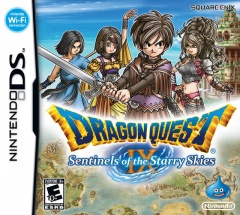 Nintendo and censorship used to go together like peanut butter and jelly. There are dozens of examples of changes between Japanese and North American versions of Nintendo console games, along with a handful of tales of U.S. and European developers being forced to alter their game in some way to receive the all-important Nintendo Seal of Quality. The hammer has let up over the past few years though, and I didn't really realize this until I started playing Dragon Quest IX.
Nintendo and censorship used to go together like peanut butter and jelly. There are dozens of examples of changes between Japanese and North American versions of Nintendo console games, along with a handful of tales of U.S. and European developers being forced to alter their game in some way to receive the all-important Nintendo Seal of Quality. The hammer has let up over the past few years though, and I didn't really realize this until I started playing Dragon Quest IX.Dragon Quest IX, while developed by the good folks at Level 5, was published by Nintendo outside of Japan. It's an enormous game with buckets of text, and since I'm about 80% of the way through the game, I can honestly say Nintendo did a stellar job translating it for English speakers. There are puns galore and not a single character, item, or town name is wasted potential. Of course, I was greatly impressed by the fan translation of Mother 3 which was done by a single guy, so maybe my standards are low.
My JRPG Localization Wishlist
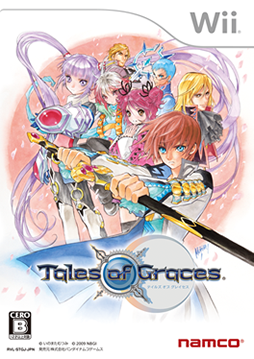 For years, Japan was the dominating force in the games industry. Ever
since Nintendo blasted onto the scene in the eighties, it's always been
my opinion that the developers in the land of the rising sun have had
the edge on everyone else. The Atari age has long since given way to
names like Nintendo, Sega, Sony, Capcom, Konami, Square, and so many
others. If I made a list of my hundred favorite games, I'd be willing to
bet that seventy or more of them come from Japan.
For years, Japan was the dominating force in the games industry. Ever
since Nintendo blasted onto the scene in the eighties, it's always been
my opinion that the developers in the land of the rising sun have had
the edge on everyone else. The Atari age has long since given way to
names like Nintendo, Sega, Sony, Capcom, Konami, Square, and so many
others. If I made a list of my hundred favorite games, I'd be willing to
bet that seventy or more of them come from Japan.These days, however, the tide has shifted. The worldwide yearning for platformers and action games and traditional RPGs has been eclipsed by the first person shooter and sports game markets, two genres that Japanese developers are woefully unfamiliar with. Only the top games in each genre outside of Halo clones and Madden wannabes can make bank anymore, and developers are starting to play it safe with what they bring to the table. One genre affected by this trend is the JRPG, which has always had a focus in Japan, but also branched out to the world stage more often than not. These days, however, it seems Japan's favorite genre seems to be transforming more and more into Japan's shyest genre, rarely coming out to say hi to the rest of us.
In a rather shocking revelation, I've actually managed to find a hearty list of JRPGs that I pine for. I've never been the genre's biggest supporter, which doesn't surprise me in retrospect considering I never owned a SNES, Playstation, or Playstation 2 during their primes. However, I hereby pledge to buy any of the following games that come to America. I said the same thing about Tatsunoko vs. Capcom, thinking it would have no chance of arriving; I made good on my promise, bought TvC: Ultimate All Stars, and loved it. So it's on you now, localization teams. Make it happen.
Games for Lunch calling it wraps
In a bit of sad news, Kyle Orland's original one hour gaming blog, Games for Lunch is on official hiatus. Kyle started Games for Lunch about a month or so before I founded The First Hour (to both my surprise and dismay at the time, complete independently) and has just written his 500th first hour review before heading into limbo. Kyle relied on other gaming sites to pay for his five(!) reviews a week and that has all dried up. We here at The First Hour were never quite as ambitious, so going from making nothing to making nothing wouldn't affect us as much.
With Kyle finished, The First Hour is part of a very small group of sites still writing anything like a first hour review. Game Trailer's Hour One only made it through five videos before seemingly giving up, but Kotaku Australia still publishes them periodically. Here's hoping a few other sites give it a try in the future.
We still plan to chug along though as I have no plans to quit. I've got a couple of games in my queue to write first hour reviews for, and our team of seven other writers always have things cooking up. If you have any suggestions on games to play, drop me a line at greg@firsthour.net
The Gaming Generation
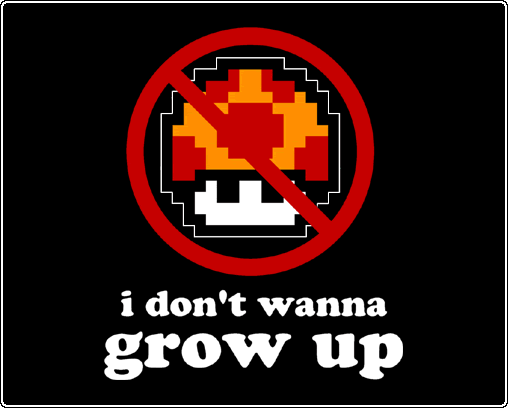 Video games came into homes more or less in the mid 1980's. Sure there
were games before then, before the crash, but I'm considering the NES as the start of what we
now know (and love) as gaming. Because of this, my generation is the first that have grown up entirely within the era of videogames. This holds a lot of implications, and I'd like to look at a few of them over time.
Video games came into homes more or less in the mid 1980's. Sure there
were games before then, before the crash, but I'm considering the NES as the start of what we
now know (and love) as gaming. Because of this, my generation is the first that have grown up entirely within the era of videogames. This holds a lot of implications, and I'd like to look at a few of them over time.I was born shortly after the NES debuted. Even though I wasn't an avid gamer until I was a teenager, I do remember video games always having a presence in my life. When I was about 5 years old, we lived in an apartment complex that had a janitor named Mario. Even though my family didn't own any video game systems at the time, I remember thinking it was funny that his name was the same as the guy from that one game. One issue this brings up is this: what becomes of gamers when they "grow up?"
LEGO Rock Band DS is the longtime sequel I've been waiting for
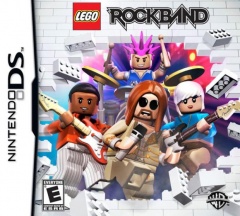 No, I'm not really excited that it's another Rock Band game or even yet another LEGO game, but that LEGO Rock Band DS is essentially the direct sequel to Harmonix's original rhythm games: Frequency and Amplitude. For the unfamiliar, Harmonix's first two games were essentially the precursor to Rock Band where you played multiple instruments, but the catch was you had to flip between instruments after successfully playing a few measures of another. The gameplay was quite a bit more complex than Harmonix's original Guitar Hero games as there were multiple sets of scrolling notes that you had to keep an eye on to efficiently keep your streak going.
No, I'm not really excited that it's another Rock Band game or even yet another LEGO game, but that LEGO Rock Band DS is essentially the direct sequel to Harmonix's original rhythm games: Frequency and Amplitude. For the unfamiliar, Harmonix's first two games were essentially the precursor to Rock Band where you played multiple instruments, but the catch was you had to flip between instruments after successfully playing a few measures of another. The gameplay was quite a bit more complex than Harmonix's original Guitar Hero games as there were multiple sets of scrolling notes that you had to keep an eye on to efficiently keep your streak going.The First Hour celebrates three years of starting new games
Three years ago I was starting my first game of God of War II and after about an hour of playing, thought, "that was incredible!" I dug out a notebook and pencil, and began replaying what I had just finished, but taking notes this time at each minute. The First Hour was born.
Since then we've posted 140 first hour reviews, 75 full reviews, and many more reviews and writings of a bunch of other video game related topics. We've also grown from one writer, me, posting once a week to an audience of few, to a team of nine writers publishing content every weekday to an audience of many (many being relative). The First Hour is a modest site, and I couldn't be happier with where it is three years after it began.
I don't want to make a bigger deal out of this than it is, but thank you everyone for reading and telling your friends. We love video games, and we love writing about them. It is our passion and the First Hour is our outlet.
The Warning Signs of Bootleg Games
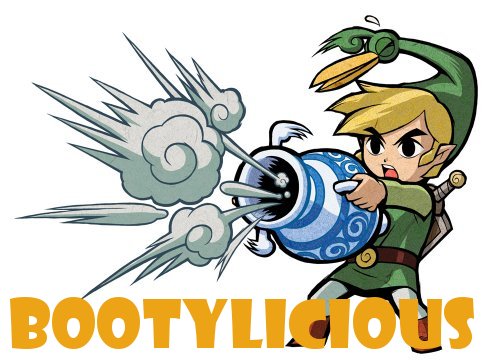 I buy a lot of my games used, most of them, in fact. I can't even remember the last game before Mass Effect 2 that I purchased brand new in a box, it's just something I've decided is both out of my budget and totally unnecessary. I've already beaten 13 games this year and have enjoyed most of them, and through a combination of buying used on Amazon, borrowing from friends, presents, spending money on deals for digital games, and a few lucky review copies from publishers, I calculated I've spent less that $100 on games this year, and that was with the $70 Mass Effect 2 Collector's Edition!
I buy a lot of my games used, most of them, in fact. I can't even remember the last game before Mass Effect 2 that I purchased brand new in a box, it's just something I've decided is both out of my budget and totally unnecessary. I've already beaten 13 games this year and have enjoyed most of them, and through a combination of buying used on Amazon, borrowing from friends, presents, spending money on deals for digital games, and a few lucky review copies from publishers, I calculated I've spent less that $100 on games this year, and that was with the $70 Mass Effect 2 Collector's Edition!So when confronted with the idea of spending $60 on a new game that will be available for $40 in three weeks, $25 in three months, or $10 in three years, I generally think twice. The used game market is my friend, and I play both sides of it. However, sometimes an older game suddenly strikes my attention and I'm quickly making what seems like a steal of a deal, only to be burned later when I find out the game I received is actually a fake, a bootleg, a counterfeit cartridge or disc.
I've determined over the years that there are warning signs for bootleg games, so I'd like to share them with you. These are just general warnings, and even if you follow all of them you might receive something fake. I'm also not discouraging anyone from buying used games online, as I think they're extremely valuable resources that save gamers tons of money.
This was originally going to be part of my Legend of Zelda: The Minish Cap review from yesterday, but I decided to break it into its own post as I believe the information stands on its own.
The QTE cure: Singin' in the Heavy Rain
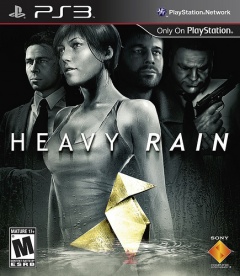 Quick Time Events. Ever since God of War and Resident Evil 4 exploded
onto the scene with button-prompt sequences of gore and horror, the
industry has shown its sheep-like nature and incorporated these Gotcha!
moments into games without thinking about how they make an
interactive experience better. Many gamers have adjusted to the fact
that every cutscene now has an awful series of play buttons throughout, but I
personally would like to cram all the QTEs in the world into a space
shuttle full of cobras and launch them directly into the sun if it meant
I'd never have to see another one again.
Quick Time Events. Ever since God of War and Resident Evil 4 exploded
onto the scene with button-prompt sequences of gore and horror, the
industry has shown its sheep-like nature and incorporated these Gotcha!
moments into games without thinking about how they make an
interactive experience better. Many gamers have adjusted to the fact
that every cutscene now has an awful series of play buttons throughout, but I
personally would like to cram all the QTEs in the world into a space
shuttle full of cobras and launch them directly into the sun if it meant
I'd never have to see another one again.
That said, it's not impossible to come across decent use of QTEs. Indeed, before Resident Evil 4 set the standard at the advent of 2005, the mechanic was most prominently-used by the Dreamcast's crown jewel, Shenmue. In fact, it was Yu Suzuki, that game's director, who coined the term "Quick Time Event." Suzuki put the gimmick to good use throughout Shenmue, allowing protagonist Ryo Hazuki to do everything from tossing drunkards around in bar brawls to saving little girls from incoming soccer balls. One of the reasons the game is so beloved today is that it allowed the player to engage in such a wide variety of scenarios, many of which were supported with smartly-designed QTEs.Good QTEs didn't end with Shenmue, however, even though sometimes it seems that's the case. Like God of War, other Playstation heavyweights have managed to use QTEs to enhance a game experience. I think it's only fair that we look at a few of those, as well as some alternatives to these timed button-prompts for cinematic flair in games.
My ideal cast for the Mass Effect movie
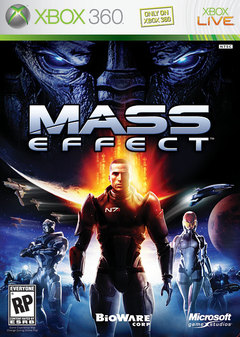 A Mass Effect film has pretty much been rumored since gamers saw the first trailer of the game years ago, and as with most popular series, the inevitable moment of the movie being announced has finally arrived. Whether it actually happens or not is still way up in the air, and Hollywood's track record with game movies isn't much help either. For every Resident Evil movie (four of them now), there are 10 ready-for-the-big-screen games that can't even get their films off the ground. Halo had Peter Jackson backing it and that was canned. David Hayter, legendary voice actor of Solid Snake and successful screenwriter can't even get enough cash to make a Metal Gear Solid film. And yet the Hitman movie is made.
A Mass Effect film has pretty much been rumored since gamers saw the first trailer of the game years ago, and as with most popular series, the inevitable moment of the movie being announced has finally arrived. Whether it actually happens or not is still way up in the air, and Hollywood's track record with game movies isn't much help either. For every Resident Evil movie (four of them now), there are 10 ready-for-the-big-screen games that can't even get their films off the ground. Halo had Peter Jackson backing it and that was canned. David Hayter, legendary voice actor of Solid Snake and successful screenwriter can't even get enough cash to make a Metal Gear Solid film. And yet the Hitman movie is made.The names fronting the money and penning the script are impressive though, so this might just happen, and if it does, here's my candidate list of actors.
The QTE plague: What hath God of War wrought?
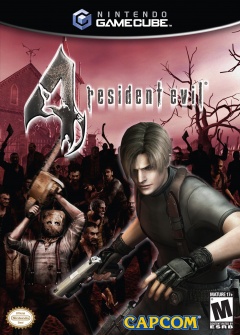 Quick Time Events. So many games have used them to some extent in the
last five years that just about every gamer has an opinion on them.
Mine is that they are the worst gameplay gimmick to take the industry by
storm in a long time, and I wouldn't mind seeing them all packed into a
burlap sack filled with leeches and thrown into the depths of a
volcano. They're tacky, they're unintuitive, and their attempts to
engage players in cinematic animations backfire and break the sense of
immersion one has with a game. And unfortunately for me, they're just
about everywhere these days.
Quick Time Events. So many games have used them to some extent in the
last five years that just about every gamer has an opinion on them.
Mine is that they are the worst gameplay gimmick to take the industry by
storm in a long time, and I wouldn't mind seeing them all packed into a
burlap sack filled with leeches and thrown into the depths of a
volcano. They're tacky, they're unintuitive, and their attempts to
engage players in cinematic animations backfire and break the sense of
immersion one has with a game. And unfortunately for me, they're just
about everywhere these days.Two behemoths let loose in early 2005 can be thanked -- or blamed -- for the salvo of games that have featured QTEs in the last five years. The first, with a January 11 release date, was Resident Evil 4. The game was extremely well-received: it won many Game of the Year awards, offered a fresh take on the aging Resident Evil formula, and gave Gamecube owners a third-party exclusive worth bragging about. The other member of the gruesome twosome that brought us into the era of QTEs is known as God of War. Released just two months after Resident Evil 4, the game received just as many accolades and turned heads back to the PS2 as quickly as they'd been lost to the Gamecube's horror hit. Is it any wonder that the industry went in the direction it did when two such monumental successes as these both prominently featured a relatively unused gameplay gimmick?
Today we'll take a look at how the smart use of QTEs helped put these two games on the map, and watch a few examples of QTEs gone wrong. And trust me, there was a huge pool of resources for the latter.
